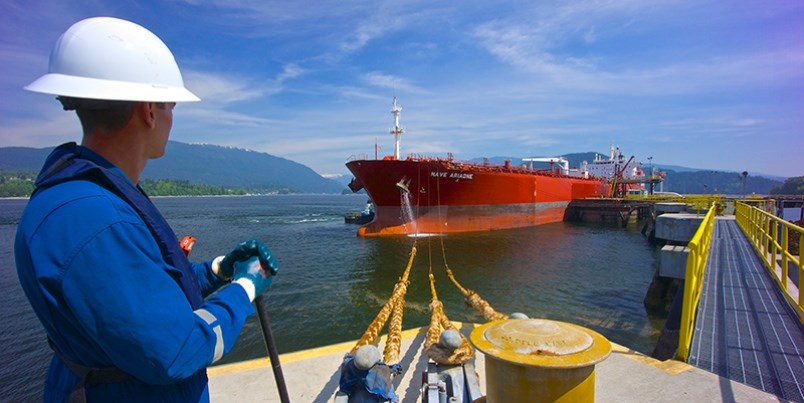On May 19, the National Energy Board (NEB) announced its decision regarding Kinder Morgan’s Trans Mountain pipeline project in the form of a 553-page report.
To almost no one’s surprise —and much dismay among residents of Metro Vancouver — the board approved the project with 157 conditions. This concluded a three-year process that was supposed to last only two years under much weakened environmental legislation brought in by the Stephen Harper government.
Under the Conservatives’ revised NEB regulations, people, businesses, governments and groups had to apply to participate as intervenors, with the privilege of submitting written questions to Trans Mountain, or as commenters, who were allowed only to submit comments to the NEB. Of those who applied, 400 were accepted as intervenors while another 798 were as accepted as commenters; more than 400 applications were refused entirely.
A major flaw with this new hearing process was that cross examination of witnesses was eliminated. Cross examination is a critical feature of any judicial process as it allows the evidence presented to be verified. The convoluted question-and-response process has proven to be a totally inadequate substitute.
Because these responses and answers were compiled as 400 sets of individual files, this created a quagmire of paperwork or online files that required considerable searching to track answers. This required time well beyond what most groups or individuals could commit to the process.
A Sierra Club report last year documented that, for the first round of 2,501 questions for which intervenors received vague and unhelpful responses, the NEB required adequate responses from Trans Mountain for only 4.5%. For example, Trans Mountain was allowed to ignore 80 questions posed by the B.C. government. There were many instances of Trans Mountain submitting evidence that was disputed by intervenors.
Lawyers for the city of Burnaby calculated that in 62% of these cases, Trans Mountain’s evidence was accepted by the NEB despite contested evidence submitted by intervenors. In contrast, the NEB accepted intervenors’ evidence over that of Trans Mountain in only 2% of the cases. This led several intervenors to withdraw from the hearing, including the respected economist Robyn Allan, who denounced the process as rigged and said the NEB had violated rules of procedural fairness.
For many people in Metro Vancouver, one of worst possible outcomes of this pipeline would be a catastrophic oil spill from greatly increased tanker traffic carrying diluted bitumen from the Westridge terminal on Burrard Inlet through the Salish Sea to destinations abroad. Here’s how the NEB dismissed that risk: “The board is of the view that although impacts from a credible worst-case spill would probably be adverse and significant, natural recovery of the impacted areas and species would likely return most biological conditions to a state generally similar to pre-spill conditions. Such recovery may be as quick as a year or two for some valued [i.e., ecological] components, or may take as long as a decade or more for others.”
The board also said: “Based on the evidence before it, the board finds that a large spill in Burrard Inlet is not a likely event.”
In other words, don’t worry, it’s probably not going to happen and if it does, in a year or two the environment will mostly recover. Whew, now we can relax, the experts have spoken. Or can we?
As for a tanker accident in the Salish Sea, from which a spill of diluted bitumen could imperil our resident orcas and much other marine life, the NEB simply said that Trans Mountain is not to be responsible for a tanker-based spill. Somehow, this doesn’t make me feel any safer, either.
The city of Port Moody and other intervenors pointed out the absence of baseline data on marine life in Burrard Inlet — data that would be essential when trying to restore the environment after a spill — yet the NEB failed to require this baseline data be gathered through science-based biological inventories.
The 157 conditions it imposed are mostly requirements simply to prepare and submit reports. Last August, before evidence was presented by intervenors, the NEB had already proposed 145 of these conditions. After hearing volumes of evidence from 400 intervenors and 798 commenters, they added only 12 new conditions.
The analysis undertaken by lawyers for the city of Burnaby showed only seven of the 157 conditions contain any enforceable obligations. For example, six months before commencing operations, Trans Mountain must file an emergency response plan for the Westridge Marine Terminal and an evacuation plan for surrounding areas.
But who will ensure these will be effective plans that really work and that all the required equipment, protocols, etc. will be in place? Shouldn’t such important information be filed as part of the hearing process so that everyone can read and evaluate it?
Robyn Allan recently criticized the NEB for failing to notice, in its economic analysis, that crude oil tankers shipments decreased from 71 tankers in 2010 to only 32 last year, an indication that the overseas market for Alberta heavy crude is disappearing.
This NEB process became a mockery of what a judicial review should be — a review based on scientific and verifiable evidence and a fair process under which all citizens can comment.
The federal Liberal cabinet now has until the end of the year to make their decision. Let us hope that wiser heads will prevail.
--Elaine Golds is a Port Moody environmentalist who is president and conservation chair of the Burke Mountain Naturalists, and member of the boards of the Colony Farm Park Association and the Port Moody Ecological Society.



